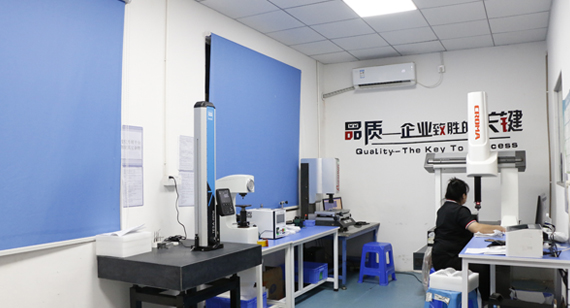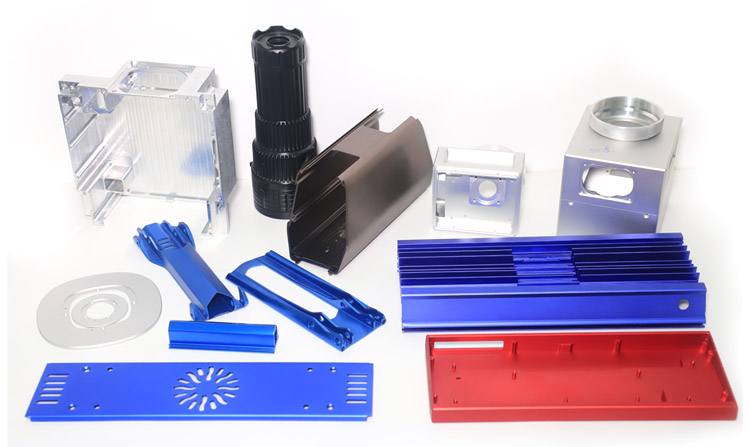15 years one-stop China custom CNC machining parts factory

Hey there I’m VMT Sam!
With 25 years of CNC machining experience we are committed to helping clients overcome 10000 complex part-processing challenges all to contribute to a better life through intelligent manufacturing. Contact us now
 105 |
Published by VMT at Jan 17 2024
105 |
Published by VMT at Jan 17 2024
Introduction:
In the manufacturing industry, delivery stability plays a crucial role in the success of enterprises. For custom CNC machined parts factories, timely delivery of high-quality components is key to gaining customer trust and maintaining competitiveness. This article explores strategies to ensure delivery stability in custom CNC machined parts factories and enhance their capability to fulfill orders on time.

I. Importance of Delivery Stability:
Delivery stability holds significant importance for a company's reputation, customer relations, and long-term development. Consistent delivery times enhance customer satisfaction, build trust, and establish long-term cooperative relationships. Conversely, frequent delivery delays or product quality issues may lead to customer attrition, damaging the company's image and market competitiveness.
II. Factors Affecting Delivery Stability:
Insufficient Production Capacity:
Limited equipment, technological proficiency, or human resources result in an inability to meet production demands.
Inadequate Supply Chain Management:
Unstable material supply leads to interruptions in production due to shortages of raw materials or components.
Poor Production Planning:
Unreasonable production plans that do not consider customer needs, production capacity, and material supply.
Quality Control Issues:
High product defect rates requiring rework or remanufacturing, affecting delivery times.
Incomplete Information Systems:
Lack of effective production management information systems to track real-time production progress and coordinate resources.
III. Strategies and Practices to Enhance Delivery Stability:
Optimize Production Capacity:
Allocate resources, including equipment, personnel, and technology, based on market demand and order volume. Regularly assess production capacity to ensure it meets customer requirements.
Strengthen Supply Chain Management:
Establish long-term partnerships with suppliers to ensure stable supplies of raw materials and components. Periodically assess supplier performance and adjust supply chain strategies accordingly.
Develop Rational Production Plans:
Develop scientific production plans based on a comprehensive understanding of customer needs, production capacity, and material supply. Use advanced production scheduling systems to improve plan accuracy and feasibility.
Establish a robust quality assurance system to rigorously control product quality. Utilize statistical process control, preventive maintenance, and employee training to reduce defect rates.

Establish Comprehensive Information Systems:
Introduce advanced production management information systems to track production progress and material status in real-time. Use data analysis and forecasting to adjust production and procurement strategies promptly.
Implement Risk Management:
Identify, assess, and control factors that may impact delivery stability. Develop contingency plans to address the effects of unforeseen events on production schedules. Strengthen communication with customers, provide timely updates on delivery progress, and negotiate solutions.
Continuous Improvement:
Regularly evaluate the effectiveness of production processes and management systems. Encourage employees to propose improvement suggestions, continuously optimizing production processes and management systems.
IV. Case Study:
Taking a custom CNC machined parts factory as an example, the factory faced delivery instability issues in the past. To enhance delivery stability, the factory implemented measures such as optimizing production processes to improve equipment utilization, strengthening supply chain management to ensure stable material supply, introducing advanced production management information systems for real-time tracking, enhancing quality control, conducting risk management, and continuous improvement. These measures significantly improved delivery stability, leading to increased customer satisfaction.

V. Conclusion:
Ensuring delivery stability in custom CNC machined parts factories is crucial for success. By implementing strategies and practices such as optimizing production capacity, strengthening supply chain management, developing rational production plans, enhancing quality control, establishing comprehensive information systems, implementing risk management, and continuous improvement, these factories can effectively enhance delivery stability. Companies should integrate these measures into their daily production and management work to continually improve delivery stability, win customer trust, and maintain competitiveness.
Ready To Start Your Next Project?
Get Instant Quote

Request a Free Quote
Send us a message if you have any questions or request a quote. We will get back to you ASAP!